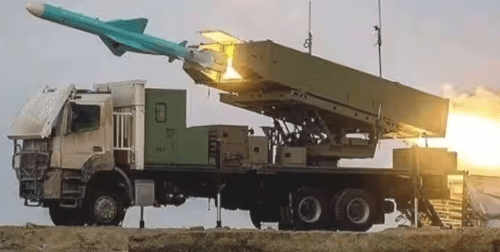Why did Iran strike Pakistan, explained? Which Jaish al-Adl faction is Tehran targeting?

Breaching Pakistan’s air defence system, Iran on Tuesday (Jan 16) targeted two key strongholds of terror outfit Jaish al-Adl (known in Iran as Jaysh al-Dhulm) in the restive Balochistan province using “precision missile and drone strikes”. The strike by Tehran inside Pakistani borders led to the death of two children, as per local reports.
The terror group said in a Telegram post that Iran’s Revolutionary Guards had used six attack drones and several rockets to destroy two houses where the children and wives of its terrorists lived.
Late on Tuesday night, Islamabad confirmed the attack and ‘unprovoked violation’ of its airspace, stating it was unacceptable.
“This violation of Pakistan’s sovereignty is completely unacceptable and can have serious consequences. It is even more concerning that this illegal act has taken place despite the existence of several channels of communication between Pakistan and Iran,” read the statement by the Pakistan Ministry of Foreign Affairs.
The foreign affairs office said it had lodged a strong protest with the concerned senior official in the Iranian Ministry of Foreign Affairs in Tehran, whilst summoning the Iranian charge d’affaires.
“Pakistan has always said terrorism is a common threat to all countries in the region that requires coordinated action. Such unilateral acts are not in conformity with good neighbourly relations and can seriously undermine bilateral trust and confidence.” it added.
Why did Iran target Pakistan?
According to media reports, the attack by the Iranian military was a retaliatory response to the death of 11 Iranian police force members who were killed by the notorious Sunni terror group, Jaish al-Adl.
The terror outfit stormed into a police station in Sistan and Balouchestan province’s city of Rask, southeast of Iran last month and killed the officers.
Following the incident, Iranian Foreign Minister Hossein Amirabdollahian and his Pakistani counterpart Jalil Abbas Jilani held a meeting where Tehran conveyed its dismay.
Iran, for a long time, has suspected that Sunni-majority Pakistan gives safe haven to the insurgents, possibly at the behest of regional arch-rival Saudi Arabia. Iran has fought in border areas against the terrorists, but a missile-and-drone attack inside Pakistan is an unprecedented move.
A senior Pakistan government official told AFP that Tehran had given no indication of the attack. More importantly, the strike took place on the same day as when Iran’s foreign minister Hossein Amir-Abdollahian met Pakistan’s caretaker prime minister Anwar-ul-Haq Kakar at the World Economic Forum in Davos, Switzerland.
What is Jaish al-Adl?
Founded in 2012, Jaish al-Adl, or Army of Justice, is a separatist terrorist group that operates both in Iran and Pakistan and has previously claimed responsibility for attacks against Iranian targets.
Its stated goal is the independence of overall Shia majority Iran’s only Sunni-majority Sistan and Baluchestan province.
In 2019, Jaish al-Adl claimed responsibility for a suicide bombing targeting a bus that killed 27 members of Iran’s paramilitary Revolutionary Guard.
What did other countries say?
After the incident, China released a statement urging both sides to exercise caution and not allow the situation to go out of hand.
“We call on both sides to exercise restraint, avoid actions that would lead to an escalation of tension and work together to maintain peace and stability,” foreign ministry spokeswoman Mao Ning told a regular briefing.
“We consider both Iran and Pakistan as close neighbours and major Islamic countries,” she said.
Previous instances of breach in Pakistani air defence
This is not the first instance when Pakistani airspace has been breached by foreign nations to conduct operations on terror operatives or groups.
In 2011, the US under former president Barack Obama carried out a daring operation to take out al-Qaeda founder Osama bin Laden. The Navy Seal commandos went deep inside the Pakistani territory in the city of Abbottabad and carried out the operation.
Not only was Bin Laden killed but his body was also retrieved and later buried at sea in the Arabian Sea on the same day. Before the Pakistani military establishment could react, the operation was done.
In 2016, India retaliated after Pakistan-sponsored terrorists belonging to Jaish-e-Mohammed struck in Uri against an Indian Army brigade headquarters, killing 19 soldiers and leaving several others injured.
The Indian forces coalesced in record time and conducted a surgical strike on the terror launch pads across the border. Estimates vary but as many as 50 to 70 terrorists were killed in the Indian Army operation.
Similarly in 2019, post the Pulwama attacks, the Indian Air Force struck terrorist training camps in Balakote. The IAF also claimed that it downed a Pakistani F-16 fighter jet during the dogfight.






